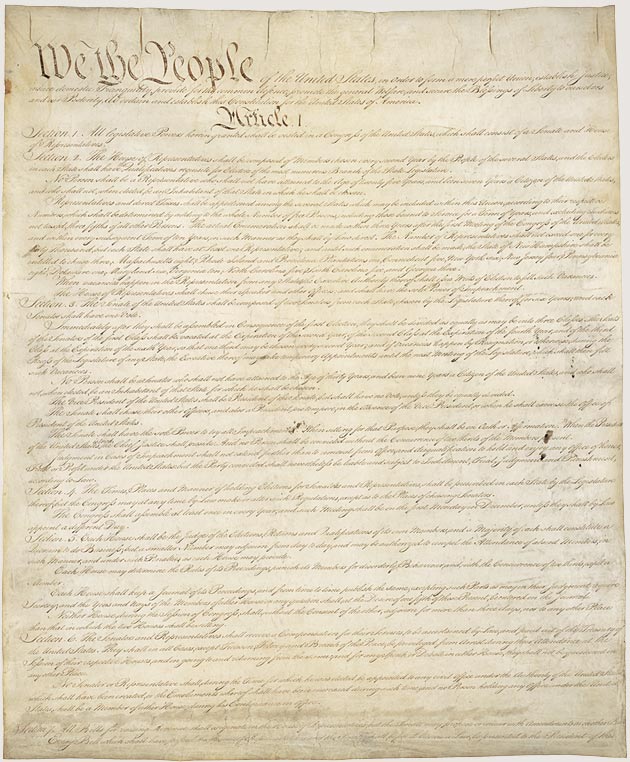“I am not going to stand up to show pride in a flag for a country that oppresses black people and people of color. To me, this is bigger than football and it would be selfish on my part to look the other way. There are bodies in the street and people getting paid leave and getting away with murder.”
Choosing not to stand during the playing of the national anthem of the United States prior to the start of a game as a form of protest, Colin Kaepernick — who is a quarterback for the San Francisco 49ers professional football team — has been causing quite the controversy which has led to a national debate; and he plans on continuing his protest until he feels like the American flag “represents what it’s supposed to represent.”
A Reminder on the Right to Free Speech and Protest
Regardless of the reasons for his protest, Kaepernick is reminding people of two ideals which American citizens might at times take for granted: the right to freedom of speech, as guaranteed by the First Amendment of the Constitution of the United States; and the ability to protest peacefully — both without fear of repercussions imposed by the government.
There are countries in this world where Kaepernick would suffer serious consequences — such as arrest, imprisonment, financial penalties and fines, corporal punishment or expulsion — just for doing what he is permitted to do in the United States.
According to this article from the Committee to Protect Journalists, the ten most censored countries in the world — where expressing your opinion or speaking your mind can lead to disciplinary action, which can include detention or expulsion as two examples of punishment — are:
Click on the name of each country listed above for details as to their ranking on the list.
In addition to the above list are the countries of Venezuela, Uzbekistan, Turkmenistan and Belarus, according to this article from ExpatFocus — and there are other countries around the world which were not included but can also be restrictive in terms of freedom of speech.
Summary
For many of us, the freedom to travel to many places around the world can be taken for granted. To some countries, that freedom is as simple as purchasing an airline ticket. To other countries, spending money on a visa — to enter or to exit the country — is needed…
…and then there are a handful of sovereign nations and territories where just being able to gain entry seems virtually impossible.
Even to the countries which may be quite easy to enter, knowing that restrictive laws and proactive censorship practices exist may be easy to forget. You can be arrested, jailed, experience corporal punishment, or earn an expulsion from certain countries if you speak against their governments; proselytize religion; or openly exhibit sexual preferences which may be against the law as only three of many examples — so consider this article an important reminder to know the laws of the countries which you plan on visiting so that you do not accidentally get into trouble. The official Internet web site of the State Department of the United States is an excellent place to start learning about what you need to know before traveling to other countries.
While I believe that the United States is one of the greatest countries in the world, I will be the first to say that it is certainly far from perfect — but ironically, having the ability to protest the very country which permits protesting is a freedom which should be appreciated. It is an important reminder — as well as a valuable lesson to show the world — as to the power of that freedom and the reasons for it.
In the case of Colin Kaepernick, the opprobrium of many people who are appalled by his actions is the result of their beliefs that he is unacceptably disparaging the American flag, the Star Spangled Banner and the United States in general — and just as he has the right to express himself in a peaceful manner, they have the right to condemn it. They also have the right to boycott the San Francisco 49ers or the National Football League, if they so choose. The United States is a free country, after all — for the most part, anyway…
…and the people who agree with Kaepernick equally have the right to express their support for him.
I personally do not particularly agree with what, where, when, why and how Colin Kaepernick is conducting his protests — but I vehemently defend his right to do so.

